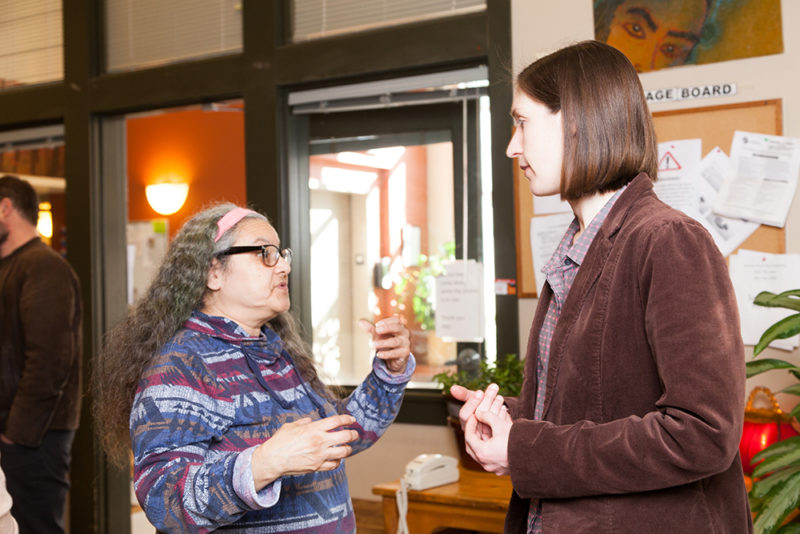Dr. Alexandra (Alex) Adame is a great listener. For the past three years, she’s been holding community coffee hours with Plymouth residents. Sometimes she talks, but mostly she just listens. When born of curiosity and compassion, this seemingly simple act can be transformative, particularly for people who have been marginalized, such as Plymouth’s residents.

Plymouth resident Emily (left) conversing with Dr. Alex Adame (right) at a coffee chat.
Experiencing homelessness often leaves people with the feeling that they’re invisible or forgotten, and that their voice doesn’t matter. This disconnection from community, and the associated loss of self-worth, makes it that much harder to achieve stability.
Alex is an Associate Professor of Psychology at Seattle University who realized that her prior work as a psychologist would be helpful to residents in supportive housing. Over time, what began as simple coffee hours turned into a research project about the nature of community in Housing First supportive housing—namely, at Plymouth. Alex conducted interviews with residents and staff throughout our buildings and is currently working on a research paper for publication based on the findings. “Qualitative research takes time, but that’s important… It parallels the process of community-building. It has to be organic.”
In the meanwhile, the impact of her work is already being felt. “I’ve been able to, in real time, get feedback from residents and share that so Plymouth can make changes in their homes and community,” Alex describes. In turn, residents feel empowered and become more invested in their homes and community, which means they’re much less likely to return to homelessness.
Plymouth has a 93% success rate with helping people remain in permanent housing. Community, built by Plymouth’s residents, staff, and volunteers, is one of the key elements to this success. Ending homelessness takes all of us—but we have proof that we can do it.